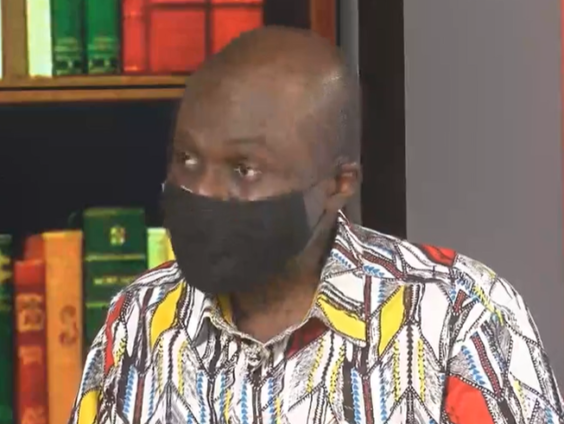Although Ghana's revised laws state that an accused person regardless of the offence should be subject to bail, there are some exceptions when it comes to the enforcement of the laws.
Speaking to the host of JoyNews' The Law, Samson Lardy Anyenini, Legal Practitioner, Martin Kpebu explained three grounds that will lead to an accused person being denied bail by the Police or the Court.
According to him, the severity of the category of the offence committed is the first reason an accused person may be denied being release from legal custody.
Persons accused of murder, manslaughter, rape, defilement, he says are most often likely to be processed for court rather than granted bail due to their crime being regarded as severe.
The second reason a person charged for an offence may not be granted bail is if the police do not have solid evidence against an accused who in executing his or her right has refused to write a statement during police investigation.
According to Martin Kpebu, the police at this stage prefer to head to court to pray to the Judge that the case is still under investigation, hence need more time.
"Usually, the first is the category of offences. As you said, when they hear murder, manslaughter, rape, defilement the heeded to non-bailable offences, they are likely to go to court than grant you bail.
"The next one is the stage of the investigation. So when they know where your mind is, and especially when their evidence is not strong, then in that case, they rather want to go to court so that they tell the judge that they are still investigating. They need more time. So the stage of the investigation is usually the second stage. That is very very crucial to them. If the evidence is not solid, they need to hear you. If you are not giving them the side of your story, they want to go to court," he stated.
The last but not least reason provided by the legal practitioner is with regards to the residence or abode of the accused person.
Mr Kpebu noted that for the police, it is important to know if the accused is deeply rooted in the country - thus whether you are a Ghanaian and if you have a family or not. He stated that persons who have not lived in the country for long, don't have a permanent residence or don't have family strings or attachment are more likely to evade when granted bail.
For that reason, such persons are denied bail.
"Then number three, they are talking about the issue of a fixed abode. Who is the person they are dealing with? If the person doesn't appear to be a person of means - the person has a fixed place of abode and when we say fixed place, it is not just that you live in house number 123, no. As part of it, they want to see if you are deeply rooted in Ghana. Do you have a wife, children? Are you a Ghanaian?
"This is where some foreigners are at a disadvantage because if you don't have this, they know that our borders are porous, when he or she is granted bail, he will jump. He will go back to his or her home. So the nationality of the person is very important," he added.
Latest Stories
-
Gender Advocate Emelia Naa Ayeley Aryee Wins prestigious Merck Foundation Awards
58 mins -
South Africa bursary scandal suspects granted bail
1 hour -
Ecobank successfully repays $500m Eurobond due April 18
1 hour -
Re: Doe Adjaho, Torgbui Samlafo IV, call for Unity among Paramountcies in Anlo
1 hour -
Extortion and kidnap – a deadly journey across Mexico into the US
2 hours -
Rihanna says fashion has helped her personal ‘rediscovery’ after having children
2 hours -
Development Bank Ghana targets GH¢1bn funding for commercial banks in 2024
2 hours -
Shatta Movement apologises to Ghana Society of the Physically Disabled after backlash
3 hours -
Sammy Gyamfi writes: Tema-Mpakadan Railway Project; A railway line to nowhere
3 hours -
Bright Simons: Is the World Bank saving or harming Ghana?
3 hours -
CAF Cup: RS Berkane banned from entering Algeria because of a map of Morocco with its Sahara
4 hours -
The media isn’t doing what is expected of journalism – Sulemana Braimah
4 hours -
Truck driver who caused train accident jailed 6 months
4 hours -
Music review: Okyeame Kwame proves rap dexterity on ‘No Competition’
4 hours -
How a 23-year-old fooled the internet with an AI Kendrick Lamar diss track
5 hours

